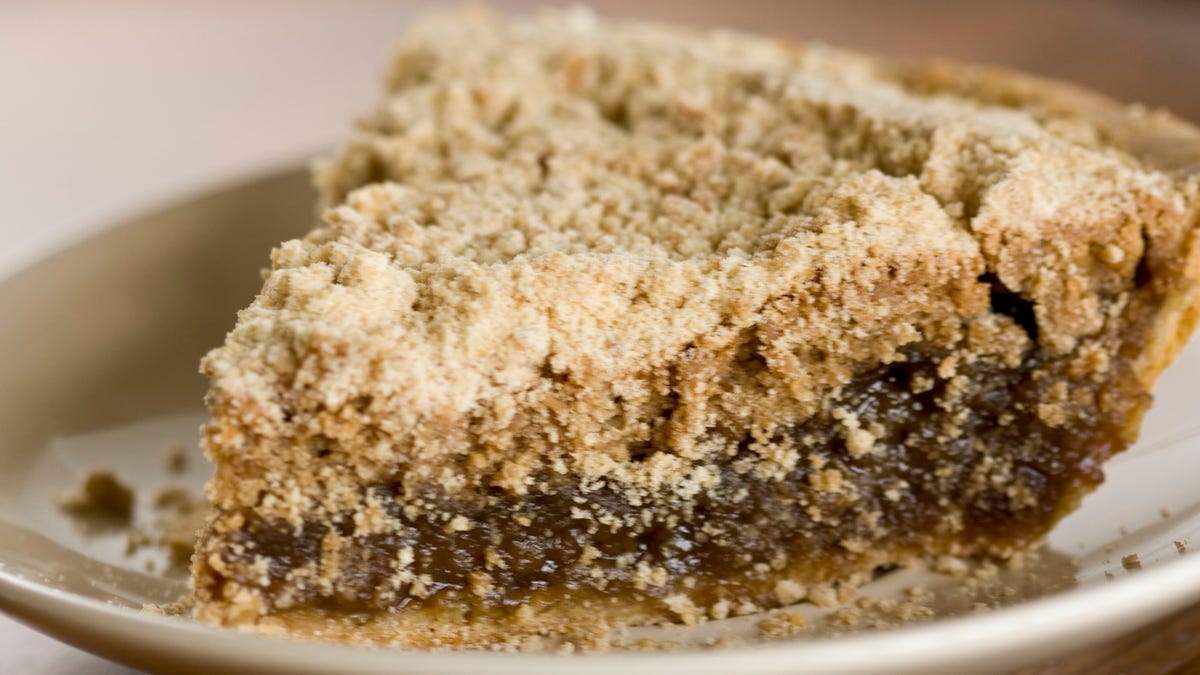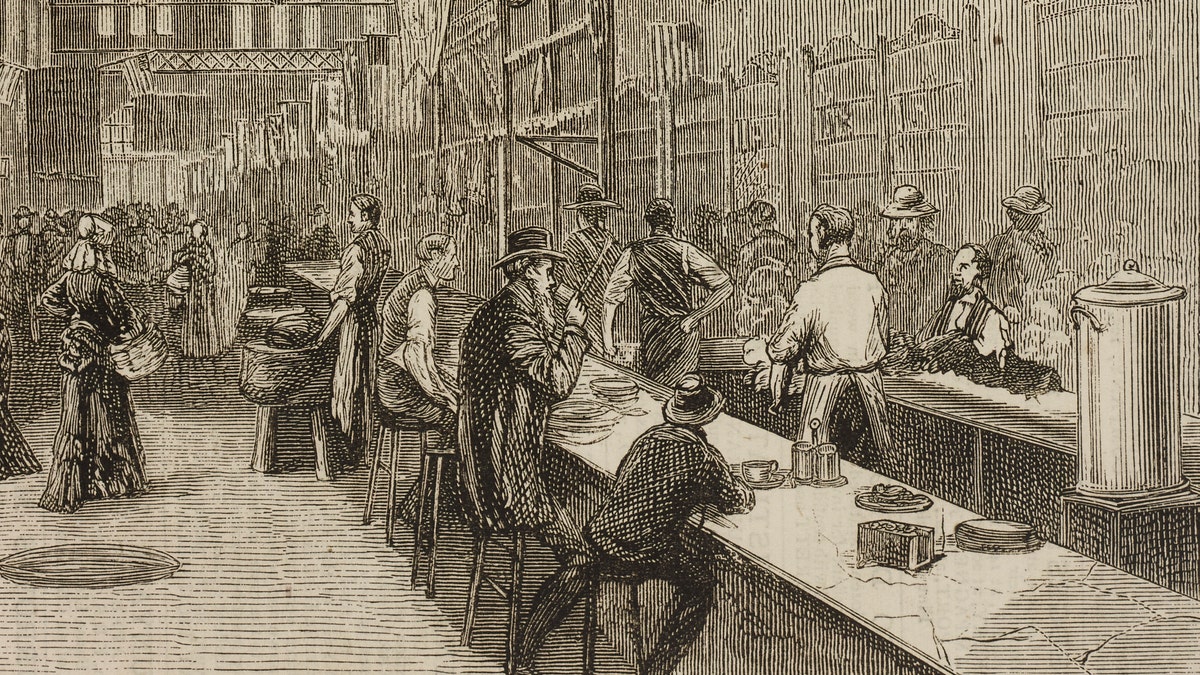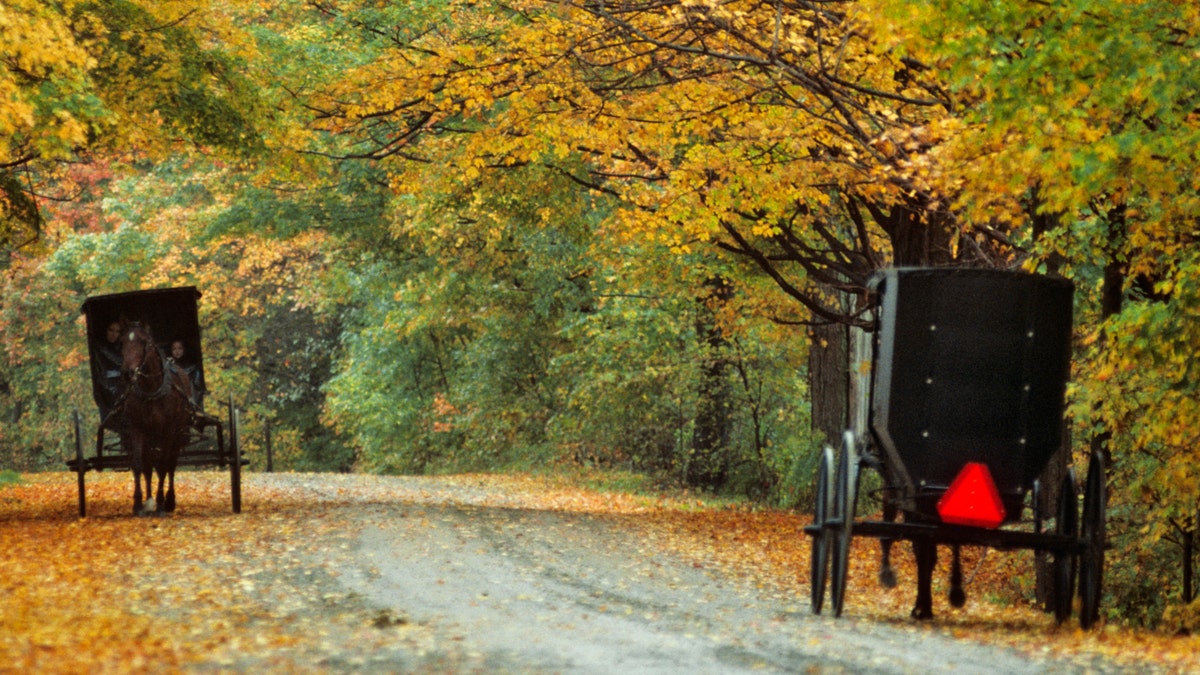Pi Day: How it's celebrated across the nation
Take a look at some of the ways to commemorate Pi Day
Bake-yard bully apple pie has stolen shoofly pie’s gooey glory all these years.
And maybe some of its cinnamon.
Apple pie has long been the standard by which the American-ness of all things is measured.
But here on Pi Day, members of Pennsylvania’s tight-knit yet crumbly shoofly pie community are ready to circle the ovens and bake a stand.
"I see no reason why we shouldn’t call things ‘as American as shoofly pie,’" Joel Cliff, spokesperson for Discover Lancaster (County) and renowned local shoofly pie taster, told Fox News Digital.

Shoofly pie, a Pennsylvania Dutch tradition, is made from molasses and brown sugar crumble. (DiscoverLancaster.com)
Shoofly pie-deologues note that apples are not even native to North America.
They're indigenous to Asia and were imported and planted in the American colonies by early settlers.
"It was a molasses crumb pie they called Centennial Cake and made in Philadelphia in 1876."
Shoofly pie was born right here in the United States, a decadently sweet pie of molasses and brown sugar crumble, traditionally mixed with lard and baked into a crust also made with lard.
It grew from a Pennsylvania Dutch culinary tradition, brought by early German-speaking settlers who began farming Lancaster County land in the 17th century.
STOUT POPULARITY AT ‘ALL-TIME HIGH’ AMID BOOMING FEMALE INTEREST, NEW ALCOHOL-FREE OPTIONS
Like most American cuisine, Old World Pennsylvania Dutch culinary traditions were soon flavored by local ingredients and other cultural influences.

Bar and food market at the American Centennial International Exhibition, in Philadelphia, Illustration from the magazine The Graphic, Volume XIII, No. 345. July 8, 1876. (Getty Images)
It’s an "old-style molasses crumb cake (Streisselkuche) baked in an Anglo-American pie shell," wrote food historian Dr. William Woys Weaver in his 2013 book, "As American as Shoofly Pie: The Foodlore and Fakelore of Pennsylvania Dutch Cuisine."
Weaver is a 13th-generation Pennsylvania Dutch author. Shoofly pie, he notes, is also patriotic pastry.
It was created to celebrate the 100th anniversary of the U.S. at the Centennial International Exhibition in Philadelphia.
FIVE UNUSUAL FOODS EATEN DURING LENT FROM AROUND THE WORLD
"It was a molasses crumb pie they called Centennial Cake and made in Philadelphia in 1876," he told Fox News Digital.
The name shoofly pie came along sometime later, Weaver said. Origins stories abound.
The sweet molasses and brown sugar were so delicious that the pie was a magnet for flies as it sat cooling by the breeze of an open window, according to an oft-told tale.

Amish horse-drawn buggies on an autumn country lane. Lancaster County, Pennsylvania. (J. Irwin/ClassicStock/Getty Images)
Another unproven story is that the 1876 centennial cakes were made with a Philadelphia product called Shoofly Molasses.
CLICK HERE TO GET THE FOX NEWS APP
The real tale does have a tail, according to Weaver.
"Shoofly," he said, "was a popular local ‘boxing’ mule."
"American pie is not a finite pie. There's enough pie to go around for everyone."
A form of entertainment in the era, boxing mules were trained to fight other animals, standing on their hind legs while wearing boxing gloves on their front hooves.
Cliff, the Discover Lancaster spokesperson, pulled his own punches in the heated dispute against apple products, hoping that cooler pies will prevail.
CLICK HERE TO SIGN UP FOR OUR LIFESTYLE NEWSLETTER
"I admit there are all kinds of great American pies," he said. "We’re just a little partial here to shoofly pie."
Cliff added, "American pie is not a finite pie. There's enough pie to go around for everyone."
For more Lifestyle articles, visit www.foxnews.com/lifestyle.










































